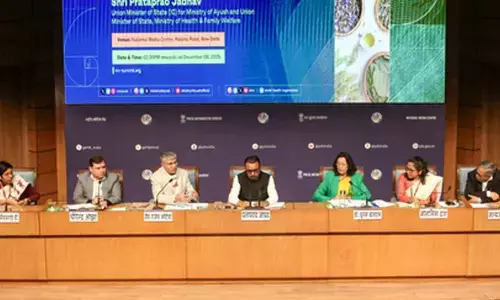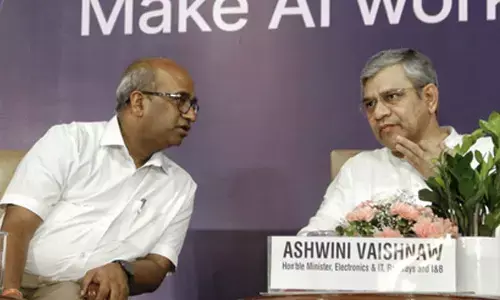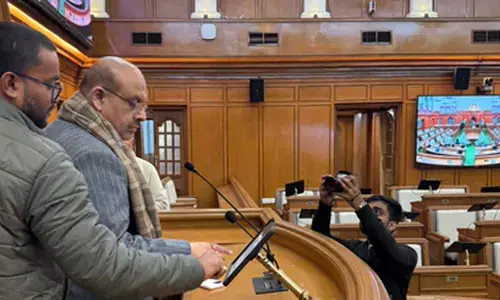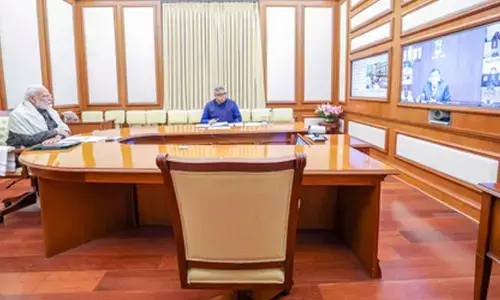More AC coaches in trains in South Central Railway zone
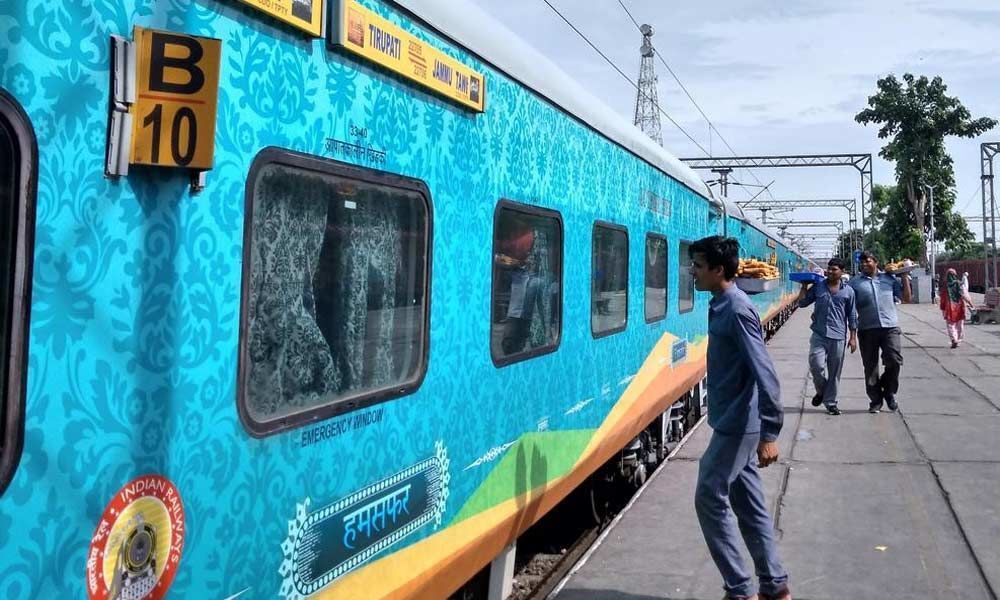
A distinct shift in rail user preference for accommodation in various Air Conditioned (AC) classes for regular as well as special trains has led South Central Railway (SCR) to formulate its plans towards enhancing the AC coach capacity for various trains.
Secunderabad: A distinct shift in rail user preference for accommodation in various Air Conditioned (AC) classes for regular as well as special trains has led South Central Railway (SCR) to formulate its plans towards enhancing the AC coach capacity for various trains. The demand for AC accommodation is gradually increasing, while the current severe summer conditions prevalent all around have only added a still higher surge.
In tune with its approach to cater customers to the optimal satisfaction levels, SCR has augmented 30 regular trains on its network with 46 AC coaches during the last 2 years. These include 2 coaches AC 2 tier, 29 coaches of AC 3 tier and 15 coaches of AC Chair Car, the three widely popular classes of AC travel. In terms of capacity, this entails around 3150 extra berths and seats for AC passengers.
On an average, each train comprises of 4 AC coaches, prominently AC 2 tier and AC 3 tier, while in a few instances, AC I class is also run. The addition of an AC 2 tier coach ensures availability of 48 berths, while in case of AC 3 tier it is 64 extra berths. For the intercity express train services which carry AC chair car coaches, the addition of one extra AC coach ensures availability of 78 seats. The efforts of SCR to enhance AC accomodation by regular trains have drawn a positive response, visible from the patronage being earned.
In the recent years, SCR has been running a number of special trains all through, based on the dynamics of traffic in various directions. Most of the special trains within the zone run between Secunderabad/Hyderabad and Vijayawada, Kakinada Town, Visakhapatnam, Machilipatnam, Narsapur, Nagarsol and Tirupati while the long-distance destinations to which special trains are run include Kolkata, Hazrat Nizamuddin, Patna, Guwahati, Jaipur etc from Secunderabad/ Hyderabad.
Additionally, a bulk set of special trains are run during the Dussera/Diwali holiday season, Sabarimalai pilgrimage season, Sankranthi festival season and the summer holiday period between April and June. Around 1,647 special trains were run in 2017-18 while 2341 special trains have been run in 2018-19. In the planning stages itself, SCR is prioritising the composition of these special trains to include AC accommodation also. At the minimal, around 20% of the coaches in these special trains are Air Conditioned.
Analysis pertaining to AC accommodation on trains in SCR shows that there is an exponential growth of around 15% in passenger traffic opting for AC 3-tier travel while in the case of AC Chair Car, the surge is around 20%, each year. There is a visible growth even in the other prominent AC class options i.e., AC I class and AC 2 tier. A significant reason for the demand to be high for AC 3 tier and AC chair car is because of the reasonable fare structure of these 2 classes vis-à-vis the non Air Conditioned sleeper class.
In actual terms, the fare difference between AC 3 tier and sleeper class is around 2.6 times, which is pocket friendly when compared to the other common mode of AC road travel. For the railways, the revenue earnings accruing out of AC class travel are also on the rise, as the figures convey for the financial year 2018-19, as compared to the previous fiscal of 2017-18. While the revenue earnings increased by about 15.6 % in case of AC 3 tier, the increase is a huge 26 % in case of AC Chair Car during 2018-19 as compared to the earlier year.
With the average temperatures increasing all around and summers becoming very hot, SCR is envisaging a concrete action plan to cater to the requirements of rail users with regard to air-conditioned travel options, with the ultimate aim to meet passenger expectations. This initiative simultaneously holds priority to ensure that the non-air-conditioned class options remain available.








